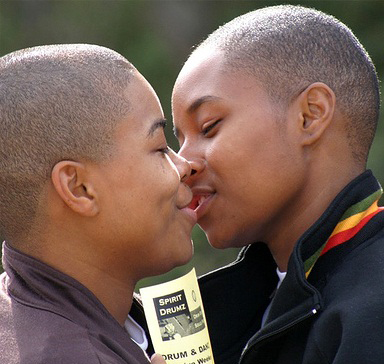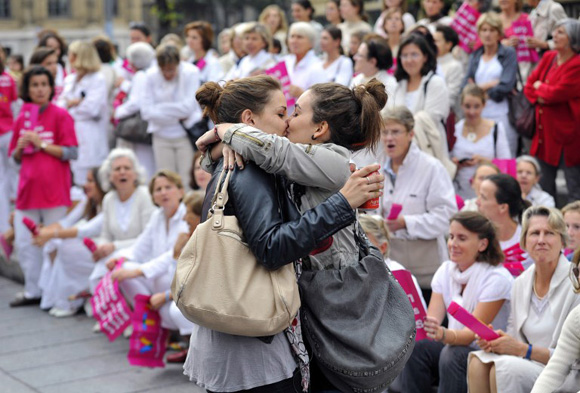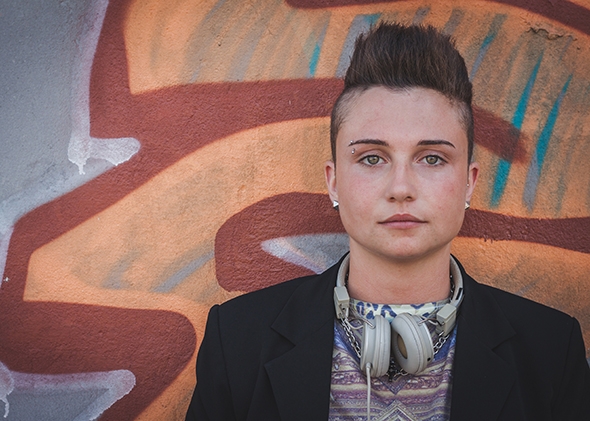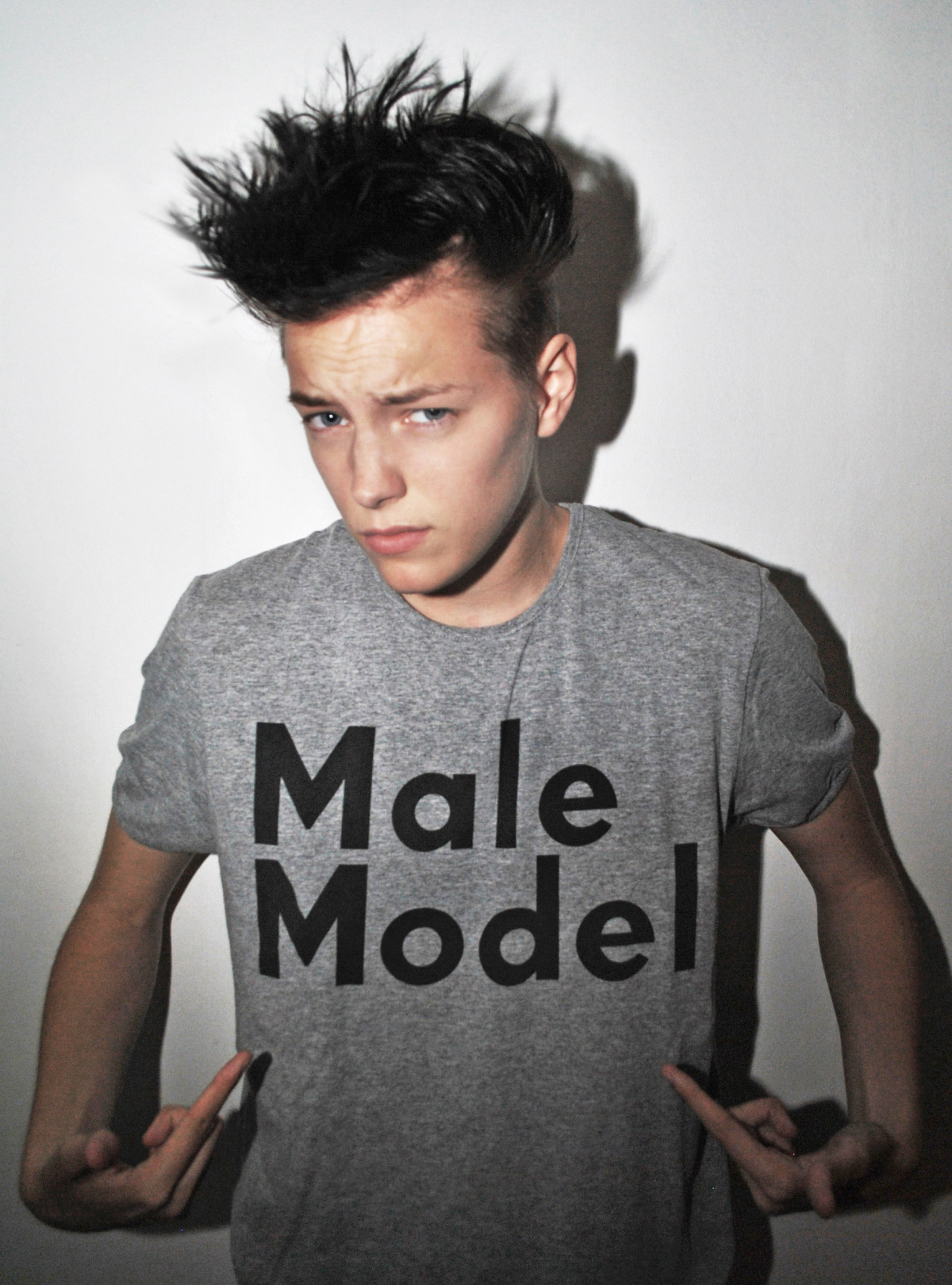2015 was a groundbreaking year for feminism. Society at large generally decided that enough is enough – and women and men have been banding together to put an end to the sexist double standards that exist. But we still have a long way to go, ladies – particularly as it pertains to sexuality.
The weird thing about this particular movement is that, all we really need to do to break the boundaries that exist between women and sex in society is to talk about it more. This isn’t a right we have to fight for, it’s not a law we have to pass, it’s just a stigma that needs to be broken.
In most cases, these particular feminist actions only require that women agree to one simple statement:
I define my sexuality. My sexuality does not define me.
This statement seems like it should be so easy to embrace, but for many women (and men) the concept is still hard to grasp. Don’t believe me?
Because sex workers are still considered criminals in most societies.
I have known a few sex workers (not intimately, of course) and I have learned that there are generally two reasons why someone might enter into that particular line of work:
- They were in a vulnerable position, and someone manipulated them into feeling like the sex trade would help them. In many cases, these women are forced into it against their will, or if they do enter that lifestyle voluntarily, there may be a threat of violence if they try to leave. Many believe they have no other options.
- They felt they were in a powerful position, and saw an opportunity to make a lot of money without any special training or tools. They have made a business decision over their own body, and these are the women who operate as their own bosses. They are often selective about their clients, or they may work in a sex trade that does not allow the clients to physically touch them (such as strippers and porn actresses).
Between these two situations, which woman are you supposed to look down your nose at? Whether you agree with their decisions or not, there is most likely a reason behind their choice that might not be apparent at first glance.
The women who are involved because they feel they have no other options should not be treated as criminals. These women are often victims of rape and domestic violence. But until we change our views surrounding women and sex, they will be perpetuated as homewreckers and thieves – even if they have no choice in the matter.
The women who are operating their body as a business shouldn’t really be criminalized either, though. Sex work is one of the oldest professions in the world – dating all the way back to the Roman Empire. There have been strippers and prostitutes and even sex slaves throughout all of history. Personally, if everyone involved is a consenting adult, how is it anyone else’s business?
Because rape survivors are still blamed for being raped.
Victim blaming is still a very real thing with rape survivors. Many people never report the assault because they know they’re going to have to deal with the onslaught of questions that follow – the questions that seek to prove, without a reasonable doubt, that they didn’t actually want it. These questions are often traumatizing, and unlike most other crimes, there is almost never any evidence to prove the victim is telling the truth.
This isn’t only from the standpoint of justice, either. Most victims of sexual assault never even get to that point because they fear judgment from those around them. They worry that people will ask them things like, “Well, you must have done something to provoke it.” “Well, what were you wearing?” “Well, if you didn’t want it, why did you let it happen?”
In a perfect society, when someone reported a rape, it would be handled just like any other crime (whether legal or personal). But the assumption is that a woman will “call rape” just because she feels guilty about having sex with someone. More positivity over our sexual expression may help to alleviate victim blaming because it allows women to be freer when they do enjoy sex. This way, there is no confusion between “rape” and “bad sex” – no means no.
Because women who dress provocatively are still called sluts.
This happens to tie in with victim blaming (above), too – we presume that if someone dresses with sex appeal, they must be doing it to get sex. Let me tell you, the two things rarely go hand in hand. Slut-shaming isn’t the only form of sex-negative attention our clothes get, either. Think about the last time you realized that someone “dressed gay”, or that you “didn’t look gay enough”. We don’t think about the deeper meaning within these words, so let me put it a different way.
Clothes say absolutely nothing about sex life.
We assume that someone’s stylistic expression is a reflection of their sexual preferences. A woman in a short skirt is presumed to be getting attention from a lot of men, whereas a woman in cargo shorts and a snapback is presumed to be pulling in a lot of ladies. It’s completely arbitrary, though, and the sooner we stop connecting the two things, the sooner we realize that you literally can’t tell anything about a person by the clothes they wear except what clothes they like – and even that is open to interpretation.
Because trans and butch women are still considered perverts for using public facilities.
I am so glad that trans issues are getting more attention this year, but it breaks my heart when I think about how much of this attention is still largely negative. We’ve made a lot of progress as a society, but it seems like every step forward is met by a step backward. Particularly as it pertains to the whole public restroom debacle – trans and butch women are stereotyped, marginalized, and sometimes even physically assaulted, simply for using public facilities.
This comes from a place of sexual insecurity, of the most damaging kind. The people who would place an assumption that these women would have ulterior motives for being in public spaces that everyone else gets to take for granted is completely unfounded and operates from the assumption that there is something inherently wrong with them – because their gender and/or sexual identities do not correspond with what society has deemed as “normal”.
Many places are now taking steps to remedy this situation by compromising with “all genders” bathrooms, but this has received its fair share of backlash, too. First, it sets us back to a “separate but equal” standpoint where the descriptively-vague are still treated as different. Second, it sets the precedent that people are still allowed to not want “those people” in “their bathrooms”. Does this sound like a problem to you?
Because women who breastfeed in public are still told to put their breasts away.
Feeding a child – the only real purpose boobs play in the world – is still considered obscene and sexual. Many people still compare it to a man pulling his penis out in a crowded subway (yikes!) – despite the fact that having someone see your penis is definitely not as important as early childhood nutrition. (Sorry to disappoint you!)
It is completely understandable that women are divided on the issue of whether to breastfeed in the first place, but it’s an important decision with many benefits and drawbacks. There are, of course, pros and cons for bottle feeding, as well, but no mother I have ever spoken to has listed sexual gratification as her reason for breastfeeding her child.
The idea that women’s bodies are inherently sexual is way overdone. I don’t know about you, but I think the person who is sexualizing breakfast is the one with the problem here. You might not have chosen to breastfeed your own child. You might not even have breasts, or children for that matter. But the idea that anyone has the right to tell a woman to stop feeding her child is completely ridiculous. Let’s leave it behind.
Because female nipples are still obscene and male nipples are still not.
It’s a little funny when we start comparing breastfeeding boobs with not-nourishing-a-child boobs, because in one case it’s only the nipple that’s offensive, and in the other case, the nipple’s covered – and people still complain. And, in both cases, if a man was doing it, no one would say a word.
Did you know there are special backpacks that allow fathers and non-lactating mothers breastfeed their child? In many cases, the exchange of oxytocin during this bonding process may actually stimulate lactation, even in men. This brings us an interesting idea… Would a man breastfeeding in public get the same sort of negative attention that women do?
The entire #FreeTheNipple movement that happened over the past year has proved, without a doubt, that man nipples are never considered sexual, while female nipples always are… even when they’re in the mouth of a child. Keep up the good work on this one – there’s still a long way to go before we reach true nipple equality.
Because the only trans women who get attention are the “conventionally attractive” ones.
In 2015, we were still largely judging people’s worth based on how attractive they were, and this really needs to stop. All trans women are women, and humans, and any notion that they have to conform to what someone else finds sexually appealing is overplayed and on its way out. Whether a trans woman “passes” or not is really none of your concern, nor is it your concern whether she’s had surgery or not.
Not all trans people choose to go through with surgery, nor do all choose to use hormone therapy or even wear makeup and “female clothes”. Do we really still care that much about what people look like?
This comes from the idea that someone is only as important as their presumed sexual worth to us. It’s the same thing that tells femmes that being gay is “a waste”, the same thing that tells studs that they “might as well be men”, and presumes that a gay man will treat a straight man like that straight man treats women. It’s an assumption that is very rarely grounded in facts and it leads to a lot of ignorance in the gay-straight intersection.
But it’s not just cis/straight people who are guilty of this, either, and that’s something that we in the community need to acknowledge – every day, there are lesbians who dismiss trans women as “not being a part of the gay community”. There are trans women who don’t consider themselves part of the gay community because they have always been attracted to men – and according to their gender identity, that makes them straight. The thing that both of these sub-groups fail to realize is that we all face similar problems as women, and even if we don’t band together under the rainbow umbrella, we do still need to band together as women.





















